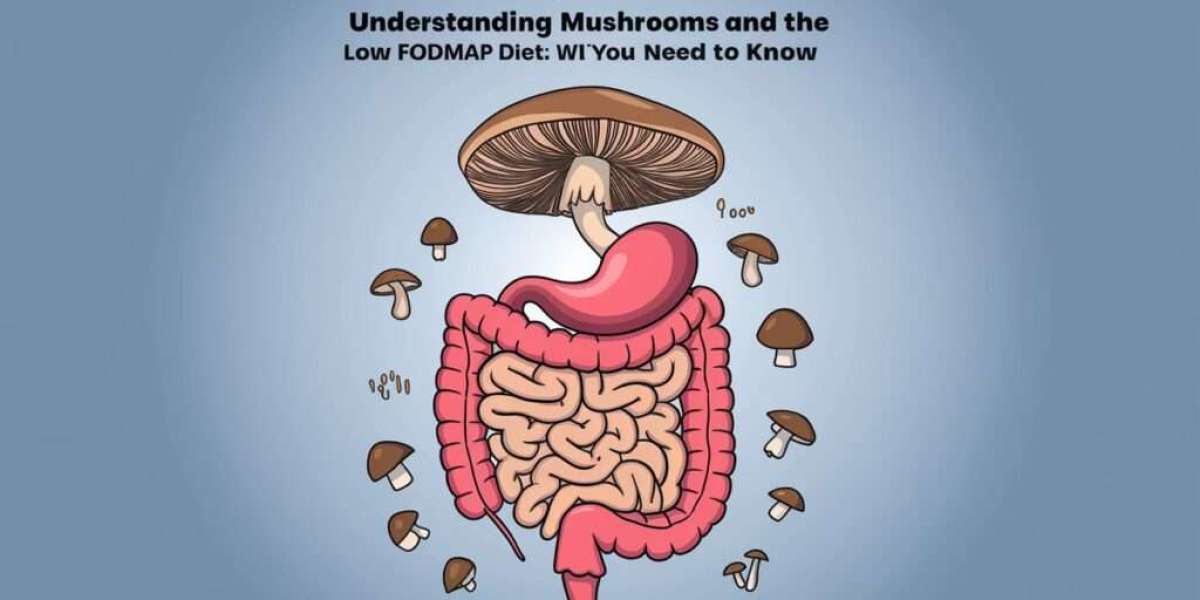If you’re managing IBS (Irritable Bowel Syndrome), chances are you’ve heard about the low FODMAP diet. This specialized eating plan focuses on reducing certain carbohydrates that can trigger digestive discomfort. One food that often causes confusion for people starting this diet is mushrooms. Are mushrooms FODMAP-friendly? The answer isn’t as simple as a yes or no — it all depends on the type and the serving size.
In this article, we’ll break down the facts about mushrooms FODMAP content and how they can affect mushrooms IBS symptoms.
Understanding FODMAPs and IBS
Before we dive into mushrooms, let’s briefly recap what FODMAPs are. FODMAP stands for Fermentable Oligosaccharides, Disaccharides, Monosaccharides, and Polyols. These are short-chain carbohydrates that are poorly absorbed in the small intestine. For people with IBS, consuming high-FODMAP foods can lead to uncomfortable symptoms such as bloating, gas, diarrhea, and stomach pain.
The goal of a low FODMAP diet is to reduce these symptoms by temporarily eliminating high-FODMAP foods, then gradually reintroducing them to identify specific triggers.
Are Mushrooms High or Low FODMAP?
When it comes to mushrooms FODMAP content, it varies widely depending on the variety.
Button Mushrooms (white mushrooms): High FODMAP
Portobello Mushrooms: High FODMAP
Shiitake Mushrooms: High FODMAP when fresh, but low FODMAP in small amounts if dried
Oyster Mushrooms: Low FODMAP
Enoki Mushrooms: Low FODMAP
Canned Mushrooms: Potentially lower FODMAP, but it depends on the brand and rinsing
The main issue with most mushrooms is that they contain polyols — specifically mannitol. Polyols are sugar alcohols that can ferment in the gut and cause bloating and discomfort, which is why mushrooms can trigger IBS symptoms for many people.
Mushrooms and IBS: Can You Still Enjoy Them?
If you love mushrooms but suffer from IBS, don’t worry — you don’t have to give them up entirely. Understanding portion sizes and choosing the right variety makes all the difference.
For example:
Oyster mushrooms are naturally low in FODMAPs and are safe to enjoy even in generous servings.
Enoki mushrooms are another great choice, with low FODMAP content in typical serving sizes.
Shiitake mushrooms can be low FODMAP if you use dried shiitake and stick to small portions (around 7 grams dried).
If you’re dealing with mushrooms IBS triggers, portion control is key. Even high-FODMAP mushrooms might be tolerated in very small amounts, depending on individual sensitivity.
Smart Ways to Include Mushrooms in a Low FODMAP Diet
If mushrooms are one of your favorite ingredients, here are a few tips for enjoying them without triggering IBS:
Choose Low-FODMAP Varieties: Stick to oyster or enoki mushrooms for the best chance of avoiding symptoms.
Watch Your Serving Size: Even high-FODMAP mushrooms might be tolerated in tiny portions. Keep servings small and monitor your body's response.
Use Canned Mushrooms (with caution): Canned mushrooms may have a lower FODMAP content if they’ve been packed in water, as some of the mannitol leaches into the liquid. Always drain and rinse thoroughly.
Pair With Low-FODMAP Meals: Balancing mushrooms with other safe ingredients can reduce the total FODMAP load of your meal and lower the risk of symptoms.
Conclusion
Navigating mushrooms FODMAP concerns can be tricky, but with the right knowledge, you can still enjoy them as part of your low FODMAP diet. By choosing the right types of mushrooms and managing portion sizes, you can reduce the risk of triggering your IBS symptoms.
If you’re new to the low FODMAP journey, consider keeping a food diary to track which mushrooms cause issues for you. Everyone’s tolerance is a little different, so experimenting with small portions is the safest way to enjoy mushrooms without discomfort.



